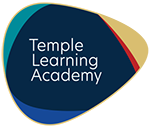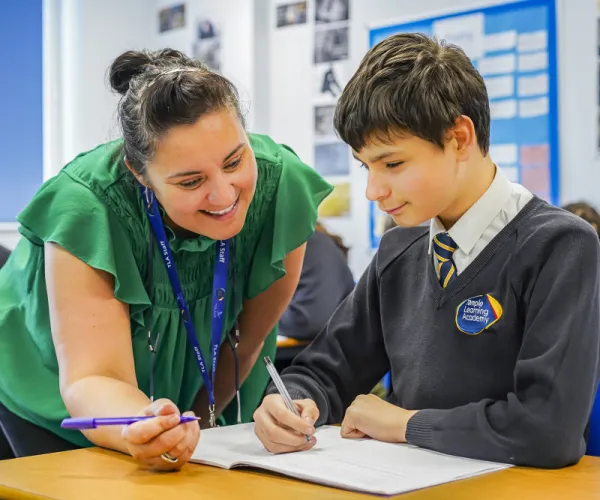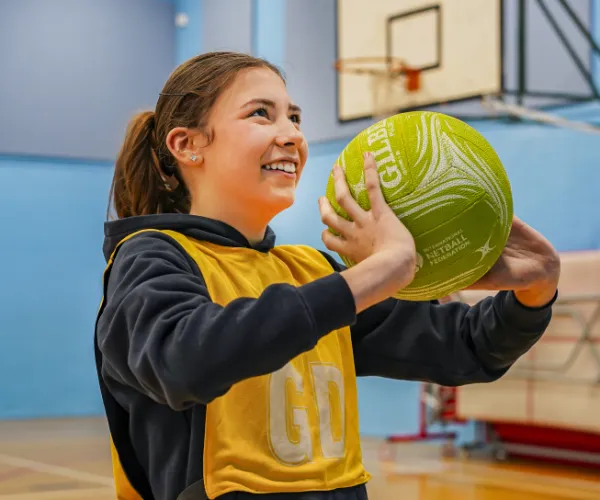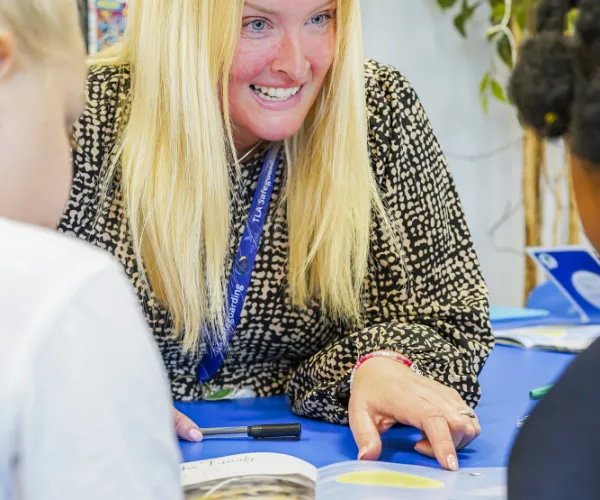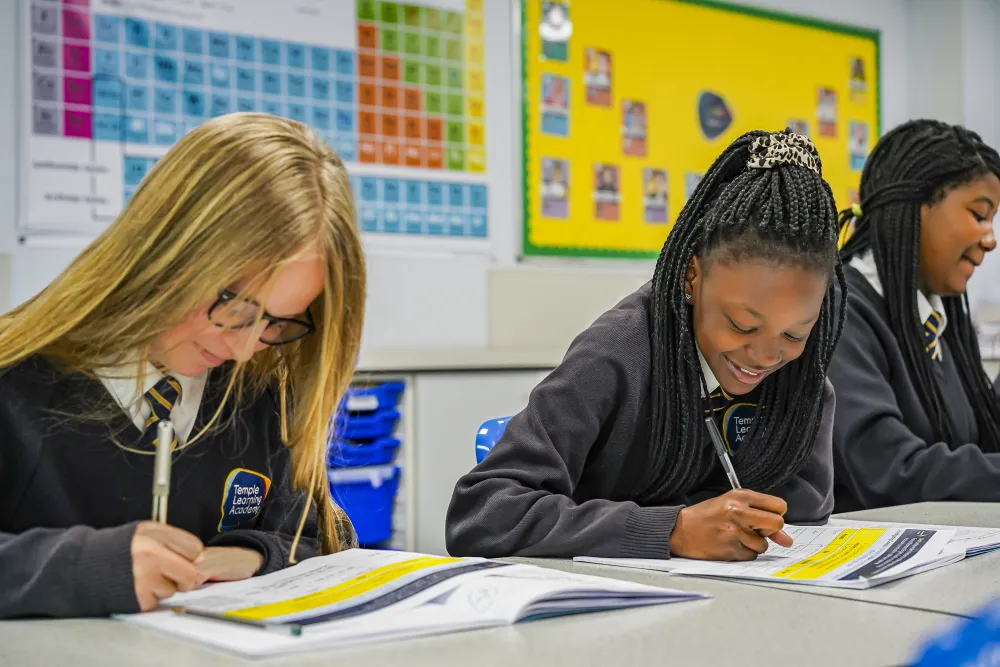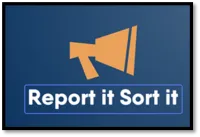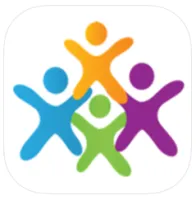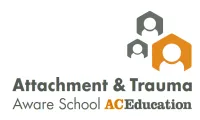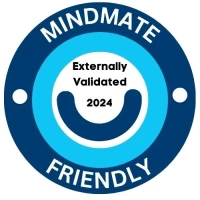Year 7
The Year 7 curriculum is predominantly designed to build a solid fundamental knowledge of numbers and the number system. We will look at how various place value systems have been developed and how their knowledge of the 4 operations using integers, fractions and decimals. We will develop a deeper understanding of geometry and properties of shapes and there will be an extensive focus upon developing pre-algebra skills.
Unit Topics
1 Place value and ordering integers and decimals
2 Solving problems with addition and subtraction
3 Solving problems with multiplication and division
4 Indices
5 Prime numbers and proof
6 Operations and equations with direct number
7 Sequences
8 Fraction, decimal and percentage equivalence
9 Addition and subtraction of fractions
10 Multiplying and dividing fractions
11 Fractions and percentages of amounts
12 Fractions and percentages
13 Developing number sense
14 Understand and use algebraic notation
15 Equality and equivalence
Year 8
The Year 8 curriculum is designed to build upon previous learning and introduce the study of ratio and proportion. We will develop further knowledge of the properties of shapes and there will be a much greater emphasis on developing the students’ algebraic skills and linking equations to straight line graphs.
Unit Topics
1 Equality and equivalence
2 Expanding and factorising
3 Forming and solving equations and inequalities
4 Sequences
5 Ratio
6 Multiplicative change
7 Constructing, measuring and using geometric notation
8 Developing geometric reasoning
9 Angles in parallel lines and polygons
10 Working in the Cartesian plane
11 Straight line graphs
12 Area of trapezia and circles
13 Line symmetry and reflection
14 Representing data
15 The data handling cycle
16 Measures of location and spread
Year 9
The Year 9 curriculum will build upon knowledge and understanding gained in Year 7 and Year 8. Ratio & proportion is explored in greater depth and students will study the use of Pythagoras’ theorem to calculate missing lengths of right-angled triangles. The study of standard form will also be introduced and geometry and statistics will be studied further.
Unit Topics
1 Standard index form
2 Sets and probability
3 Tables and probability
4 Pythagoras’ theorem
5 Trigonometry
6 Circles
7 Three dimensional shapes
8 Numbers
9 Limits of accuracy
10 Algebraic manipulation
11 Quadratic graphs
12 Real life graphs and compound units
13 Constructions and congruency
14 Rotation and translation
15 Enlargement and similarity
At the end of KS3, students can choose whether to continue to study Mathematics into KS4 and gain a qualification. For those that do not continue to study Mathematics we hope they continue with their education with a lifelong love of Mathematics, understanding of Mathematics and appreciation of Mathematics. We also hope that the will have developed skills such as resilience, reasoning and problem solving that will support them in life as independent, young adults.
